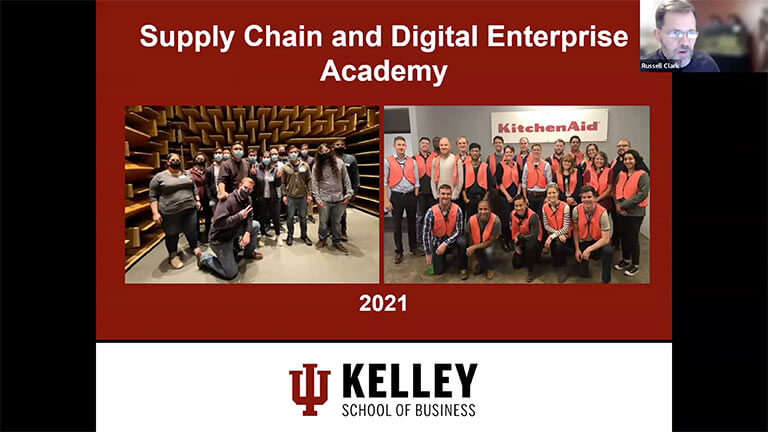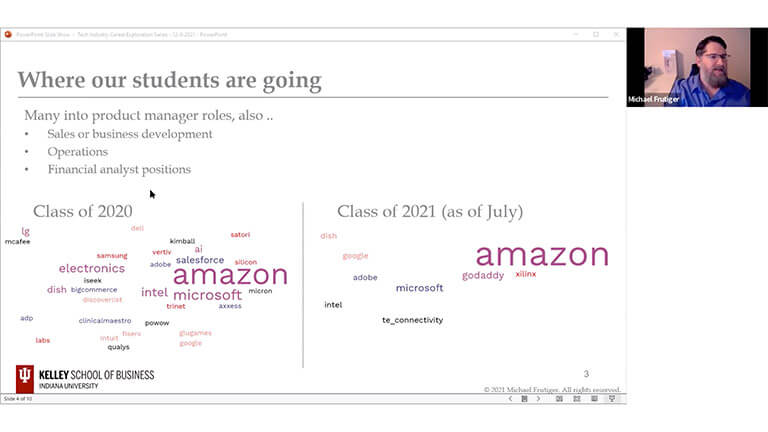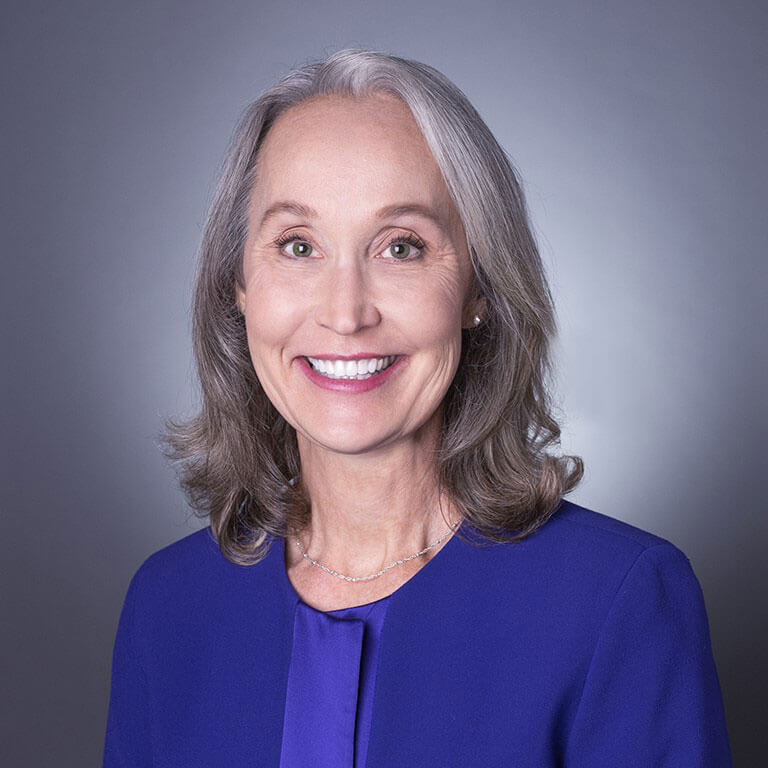Description of the video:
Jay Buente:
I'm a career switcher from professional baseball. I came into Kelley with no business experience and I decided to choose the Supply Chain Academy.
Natalie Curts:
I was working a lot in marketing business development with Chinese factories and it was just really chaotic. And so that really led me to wanting to come to get my MBA at Kelley, really to answer these questions that I had about what is good management and how can we really make the most out of the factories.
Dan Carroll:
We work hard to help students get the jobs they're looking for. We do that with a very student-centric approach, get to know the students, get to know what they're interested in. After that, we try to cater the program to meet their needs so that they get a rich experience in areas that interest them.
Dan Carroll:
Our second years are very, very supportive of our first years. And I think that's truly different of our Academy. The Student Association will organize happy hours and networking sessions. They'll organize student treks where the students can go and visit companies that they're interested in.
Jay Buente:
The first semester, they bring in speakers and they bring in industry experts where we're able to do hands-on exercises and activities.
Bill Matheson:
The Transportation Executive Board is really a collection of professionals that are in the supply chain industry that have all graduated from Indiana University Kelley School of Business, and have an allegiance to the school, but also an allegiance to the industry.
Tom Williams:
This will provide value to the students at Kelley. It's a great networking opportunity. We're going to provide good funding.
Bill Matheson:
The Executive Board's goal is to be able to seek out students that are interested in Supply Chain and engage them in internships and also learning opportunities through special projects while they're here at school.
Eric Starks:
We are really excited about the Transportation Board, because we can bring to students a lot of real-world experience. Because we're not just talking about putting people in and saying, "They stay middle management." That's not what we're looking at. We're looking at trying to develop leaders out there. We want to know who that next CEO is going to be.
Dan Carroll:
Some of the best companies in the world come to help interact with our students and to help our students understand how those processes work out in the industry. In the second semester we have an eight week action learning event or a project where we take a real project at a company and we will put a team of four students that are generally interested in that topic to work for that company to solve that problem.
Jay Buente:
They immerse you into the content and the details right away. You really gain immediate exposure to all the possibilities within that industry.
Dan Carroll:
We'll take a week and we'll go to some of the best manufacturers in the world.
Natalie Curts:
We were able to see the factory, hear from the CEO, talk to him a little bit. And during that interaction, I sort of said to him, "Hey, this is really interesting what you guys are doing here. You're a really lean environment. And I can appreciate that. Because the places I'd worked in China, they're just not." And the CEO turned to me and really just said like, "Hey, can you speak Mandarin?" And I said, "Yes, I can!" So then he said, "Oh, if that's the case, I have a job for you tomorrow!" And so it was won entirely because of the Academy that I was able to get this amazing internship opportunity.
Dan Carroll:
So our recruiters are telling us that the quality and depth of the experience here is unmatched in some of the other schools that they recruit.
Jay Buente:
I actually ended up getting an internship early in November because of the Supply Chain Academy, because I was able to gather a lot of information and knowledge. And those in combination allowed me to go into my internship with a lot of confidence and ultimately land a full-time position.
 Gain insights about the Academy and careers in supply chain management and emerging technologies from Academy leaders, alumni, and a student.
Gain insights about the Academy and careers in supply chain management and emerging technologies from Academy leaders, alumni, and a student.
